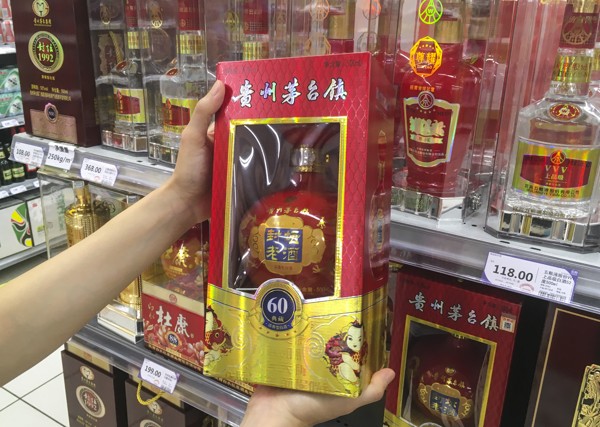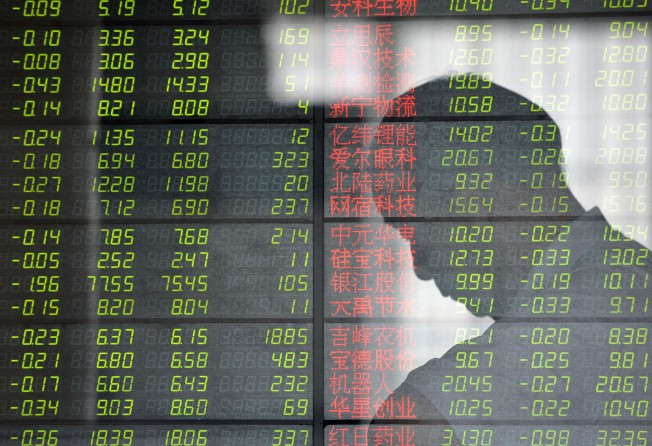
Chinese state funds’ Q1 portfolio strategy goes contrarian, quietly
China’s state funds, known as the “national team,” ditched market favourites and quietly began collecting laggards in the first quarter, adopting a contrarian strategy in their portfolio allocations.

China’s state-backed funds spent the first quarter of the year quietly selling off stock investors’ favourites, and buying laggards, the latest data suggests.
“The national team” – the market’s nickname for Chinese investors of state-linked funds – cut its holdings in this year’s best-performing consumer stocks including, Gree Electric Appliances and liquor maker Luzhou Laojiao, according to data compiled by Sinolink Securities.
While at the same time it added added low-valuation banking shares, including China Minsheng Banking and Bank of Nanjing whose stocks have slid at least 5 per cent this year, the data showed.
The actions seem to buck market trends this year with investors generally accumulating consumer stocks, pushing companies including Gree and liquor giant Kweichow Moutai to all-time highs, while dumping financial companies amid the escalating regulatory surveillance against deleveraging.

Selling some consumer stocks could certainly be considered justified on a valuation basis, and some investors including Jingxi Investment Management say having reached new highs this year, the
sector’s rally is probably now nearing its end.
“The sector’s valuations already look stretched,” said Wang Zheng, chief investment officer at the Shanghai-based firm.
“Looking ahead, I don’t’ think the stocks will rise as they have done so far this year. The run-up [in prices] is most likely over.”
Consumer stocks now look expensive compared with the broader market.
One measure of consumer staples recently surged to its highest level relative to the CSI 300 Index of the 300 biggest stocks in the Shanghai and Shenzhen exchanges, since at least 2013.
The nation’s biggest maker of air conditioners, Gree Electric has increased 33 per cent this year and Luzhou Laojiao by 38 per cent, beating the Shanghai Composite Index’s overall 0.8 per cent gain since the start of January. The index is the country’s dominant index.
But still, by the end of the first quarter, banking stocks represented 77 per cent of state fund holdings, followed by the non-banking financial and pharmaceutical sectors, the report said.
The state funds cut their positions in food and beverage stocks by 0.11 per cent in the first quarter and increased holdings of banking shares by 0.96 per cent, according to Sinolink Securities.
Their total stock holdings rose 6.5 per cent from the fourth quarter to 3.75 trillion yuan (US$544 billion), the brokerage said, making up about 7 per cent of China’s market capitalisation.
China national-owned stock holdings are mainly held through China Securities Finance, Central Huijin Investment, a unit owned by the nation’s sovereign wealth fund, and three investment arms controlled by the foreign-exchange regulator.
Top policy makers created the state-backed funds after the summer of 2015 to stem a market rout that erased almost US$5 trillion in market value.
Even now well after the stock turmoil, the funds are suspected of often investing in equities to prevent wild swings, as evidenced by the fact that volatility of the Shanghai Composite still remains at historically lows.
The national team, said the Sinolink report, is an advocate of value investing, preferring stocks with cheap valuations. Companies with price-to-earnings ratios less than 20 times accounted for the most part of its holdings in the first quarter.
Wei Wei, a trader with Huaxi Securities, however, added that appealing current valuations were not reason enough to explain fully why the state-funds were buying banking stocks, which are trading at below 10 times earnings on average.
The funds’ shift to index-weighting banks was serving the double purpose for the state-backed funds, of being able to buying cheap, and stabilise the market, said Wei.
Buying banks stocks is also being viewed as an easy way to prevent the whole market from slumping, as the banking sector accounts for around a fifth of the Shanghai Composite’s total weighting.
The Shanghai Composite has now gone a record 86 days of daily drops less than 1 per cent, through to the end of last month.
